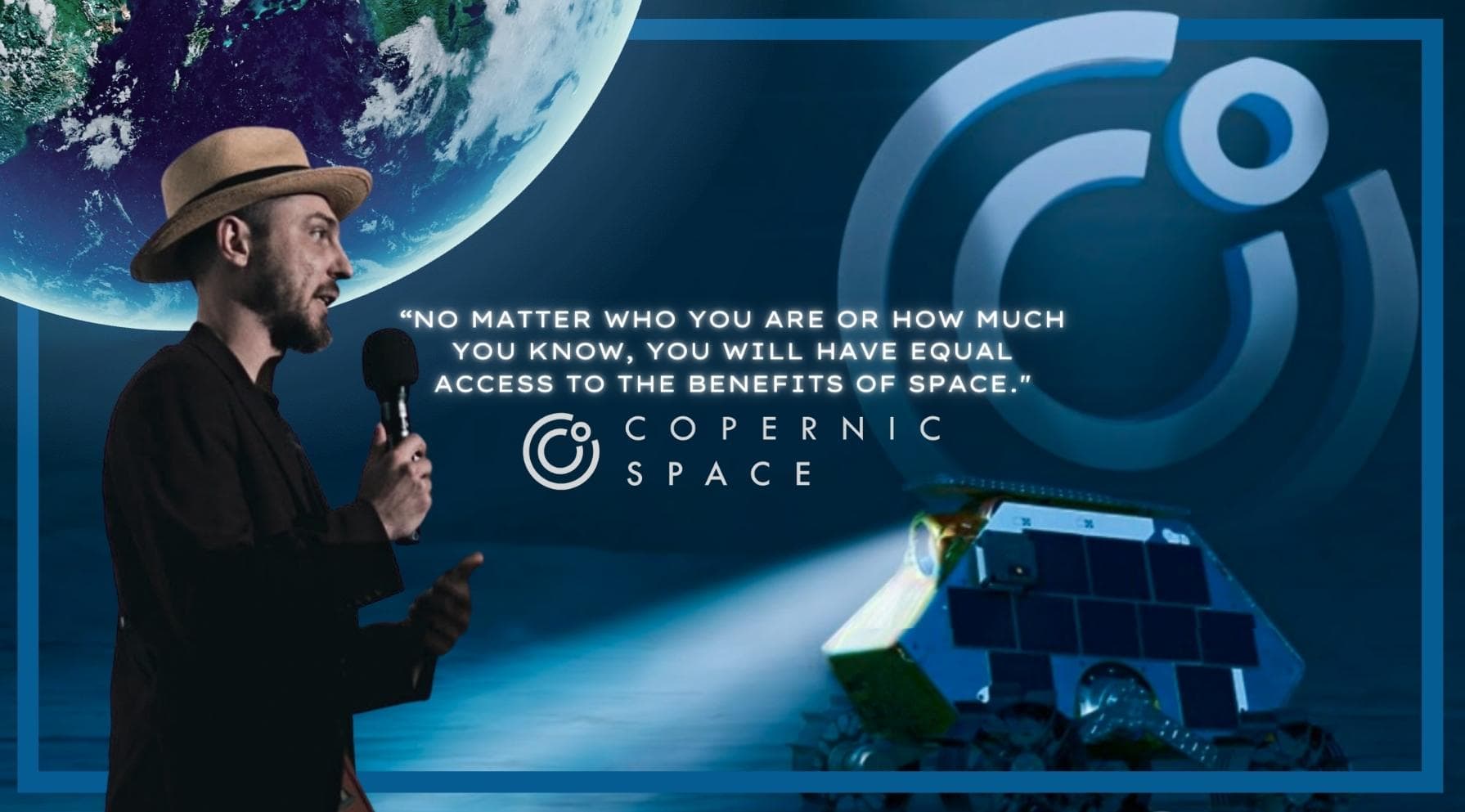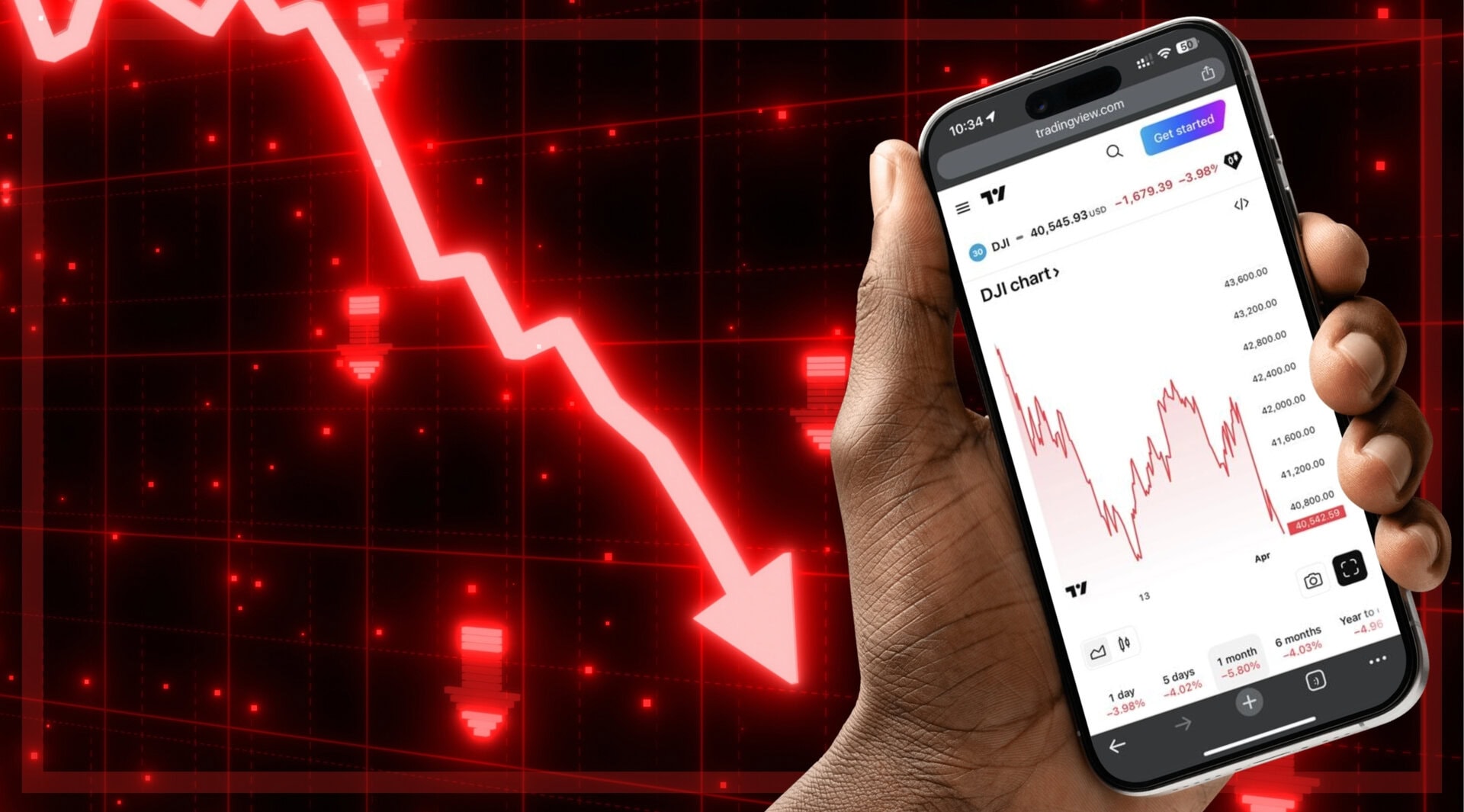Last year Virgin, Blue Origin and SpaceX kicked off their own ‘space race’ capturing the eyes and minds of many around the world. However, the media focus on the few billionaires and state organizations such as NASA wrongfully implanted the thought in the public mind that for the most part that’s all there is to the Space economy.
But there’s far more going on in the ‘space’ with thousands of companies and startups building world and space-changing solutions that soon could be economically accessed by you and the wider market through Web3 platforms.
#DisruptionBanking sat down with Grant Blaisdell, co-founder, and CEO of Copernic Space, to find out what else we should know about the budding new space economy and where crypto and NFTs might fit into it all.
Grant has been involved with cryptocurrencies since 2013 and already has a successful crypto startup under his belt as the Co-Founder of the blockchain RegTech platform Coinfirm. Today he combines his two passions and his family legacy together in his latest project, Copernic Space.
What should we know about the new space economy?
Grant, in his usual charismatic and visionary style, kicks off the discussion by explaining how we are talking about an already $500 billion industry that’s projected to be $1 trillion by 2029. Grant believes that it’s already a market of that size, but “no one is facilitating transactions”. And space is an industry that is hard to “truly economically interact with as its value is tied to scientific or technical utility and lacks a digital marketplace.”
It’s not just the challenge of participating in a ‘space marketplace’. Grant also believes that the new space industry being built today feels a little bit like the crypto industry did when it was starting. And as far as why the opportunity seemed right, Grant explained how “we saw all these space companies, and that they don’t have a marketplace to even discover them and the assets they have to offer. There’s no market to discover them, let alone be able to easily engage and transact with them.” To the trained eye, it is highly similar to the humble beginnings of crypto without easy to use exchanges like Coinbase and the now booming NFT market and related marketplaces.
“Space has never been commoditized, it’s never been ‘asset-ized’,” explained Grant. “As long as the value of the market is viewed from its scientific and technical utility, it’s missing the majority of its transactional potential and therefore overall potential to grow and benefit people both economically as well as through solutions that improve life here on earth.” The ‘majority’ because there are shares one can acquire in exotic space or satellite firms through investment funds like Space Capital out there. But generally access to investments in the space economy are very privileged and require what is significant capital for the majority of people. However, if the space market had the hype around it that crypto does… And if it was as easy as it is to get involved with crypto…
Is the merge of Space and Crypto the largest next opportunity?
The comparisons between Space and Crypto that Grant highlighted is a topic that needs more analysis. Grant explained further:
“We are doing two things. We’re providing a digital commercialization standard and easy to use interface for space. What we call space assets, but are space products, services, ownership, etc.. such as cargo space on rockets or satellite data” Grant elaborated. “And the other thing is creating an asset class and market out of it so that the wider commercial and for the first time ever the retail market can be involved in it. This extends the revenue streams, allowing for the growth of the market in ways that it couldn’t before while providing direct economic access to individuals around the world.”
The concept of space assets is probably the first novel concept to get one’s head around. It comes as no surprise that the next thing that comes up is NFTs. How NFTs are also space assets that enable fractionalization along with wider applications and access :
Front-page article by @SpaceNews_Inc about #blockchain in #space features Copernic Space!🚀https://t.co/n0AvX5eGaL
— Copernic Space (@CopernicSpace) November 16, 2021
"Established by Copernic Space to convert assets like rides to orbit or shares in a space startup to digital tokens that can be bought and sold quickly and easily." pic.twitter.com/pGfwOVZ0Na
The concept of buying and selling payload space on some sort of satellite or space shuttle is easier to comprehend than some of the fungible token concepts. And this is where talk turns to the Moon.
To the Moon isn’t just a catchphrase for Crypto anymore
Space might better resemble the decentralized nature of the cryptocurrency ecosystem now. And the Moon will be the stage for one of the first real use cases for space ‘asset-ization’, as Grant calls it. As the New York Times article title states “2022 is Full of First Steps to the Moon”, leading to a real ‘Lunar Outpost’ forming. Copernic Space is playing a part in it by teaming up with leading lunar rover company Lunar Outpost. Not only to provide a marketplace to more easily acquire the rights to send payload to the Moon. But also to acquire a space asset in NFT format of the payload to be purchased by the retail market for the first time.
With @LunarOutpostInc we are going to launch the first tokenized payload space sale ever!🚀🌔🤯
— Copernic Space (@CopernicSpace) September 29, 2021
It will allow corporate and retail buyers to buy, fractionalize and resell payload space on their M1 MAPP Rover headed to the Moon in 2022 as #NFTs 🤲👩🚀👨🏿🚀 https://t.co/Rfi7PKT3V8
When a new frontier opens up, it’s hard to grasp how impactful it will be. However, with the data available today it can be confidently said – Space and crypto are a powerful combination of technology. And when the asset launches and lands on the Moon in December. It will mark the birth of a new value ecosystem.
One small step for blockchain, one giant leap for the democratization of space.
The Editorial Team at #DisruptionBanking has taken all precautions to ensure that no persons or organisations have been adversely affected or offered any sort of financial advice in this Article. This Article is most definitely not Financial Advice.
















One Response
Bravo #DisruptionBanking,and Copernic Space, Grant Blaisdell for engaging in unprecedented lead on disrupting Banking, and Space at the same time! Carry on because disruption will save planet Earth – and Space will play a key part in it! As a co-founder of Copernic Space I always wanted to create system to capture potential of limitless Space economy, here on Earth, so we can spend on Saving the Earth by tokenizing Space Assets and offer new wealth source to communities, individuals,without reliance on old industrial era funding systems. And remedy what I personally suffered from, alongside other women and men: smallness of VC, banking, and equity capital available to Space startups as compared to the value we create. I wanted to create a new way to lift off scalable Space financing options! To do our own platftom to engage rest of us in choice to finance our Assets ! Great job- carry on! Sorry if I misspelled -I am sitting in the Sun on Zuma beach – Malibu,thinking about my Zuma Space start up which plans to use Copernic Space! And satellites …to help with Climate Change!